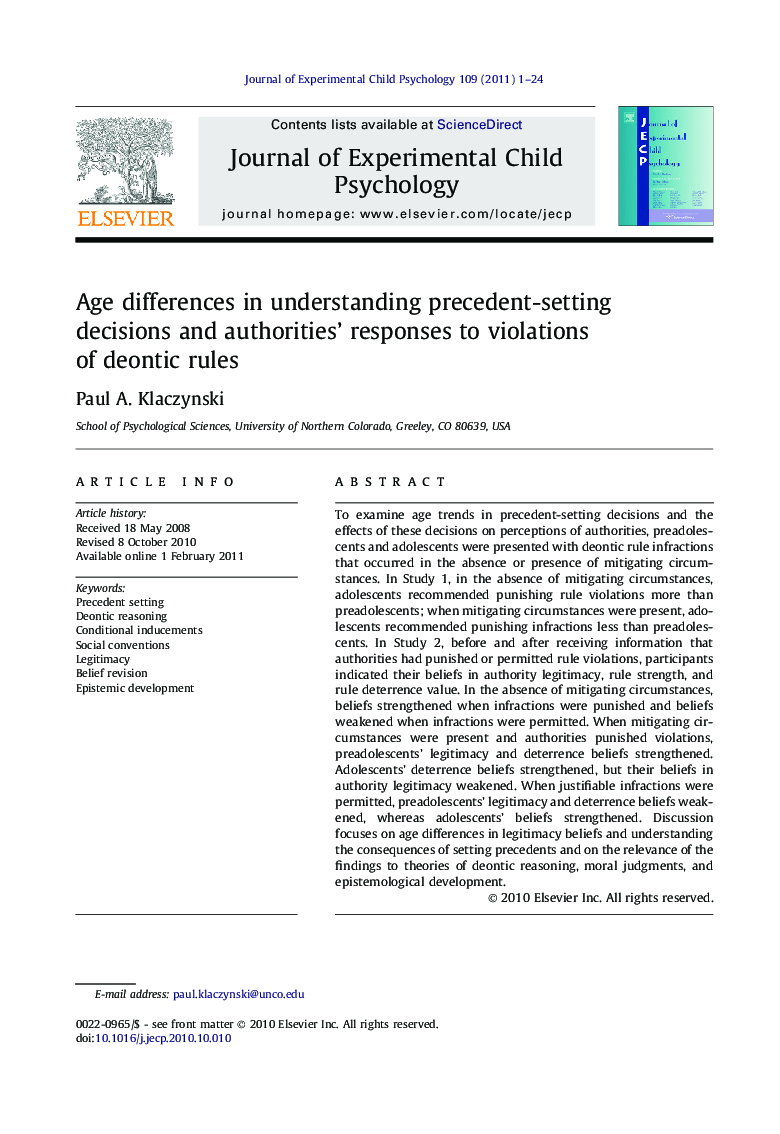| Article ID | Journal | Published Year | Pages | File Type |
|---|---|---|---|---|
| 918378 | Journal of Experimental Child Psychology | 2011 | 24 Pages |
To examine age trends in precedent-setting decisions and the effects of these decisions on perceptions of authorities, preadolescents and adolescents were presented with deontic rule infractions that occurred in the absence or presence of mitigating circumstances. In Study 1, in the absence of mitigating circumstances, adolescents recommended punishing rule violations more than preadolescents; when mitigating circumstances were present, adolescents recommended punishing infractions less than preadolescents. In Study 2, before and after receiving information that authorities had punished or permitted rule violations, participants indicated their beliefs in authority legitimacy, rule strength, and rule deterrence value. In the absence of mitigating circumstances, beliefs strengthened when infractions were punished and beliefs weakened when infractions were permitted. When mitigating circumstances were present and authorities punished violations, preadolescents’ legitimacy and deterrence beliefs strengthened. Adolescents’ deterrence beliefs strengthened, but their beliefs in authority legitimacy weakened. When justifiable infractions were permitted, preadolescents’ legitimacy and deterrence beliefs weakened, whereas adolescents’ beliefs strengthened. Discussion focuses on age differences in legitimacy beliefs and understanding the consequences of setting precedents and on the relevance of the findings to theories of deontic reasoning, moral judgments, and epistemological development.
